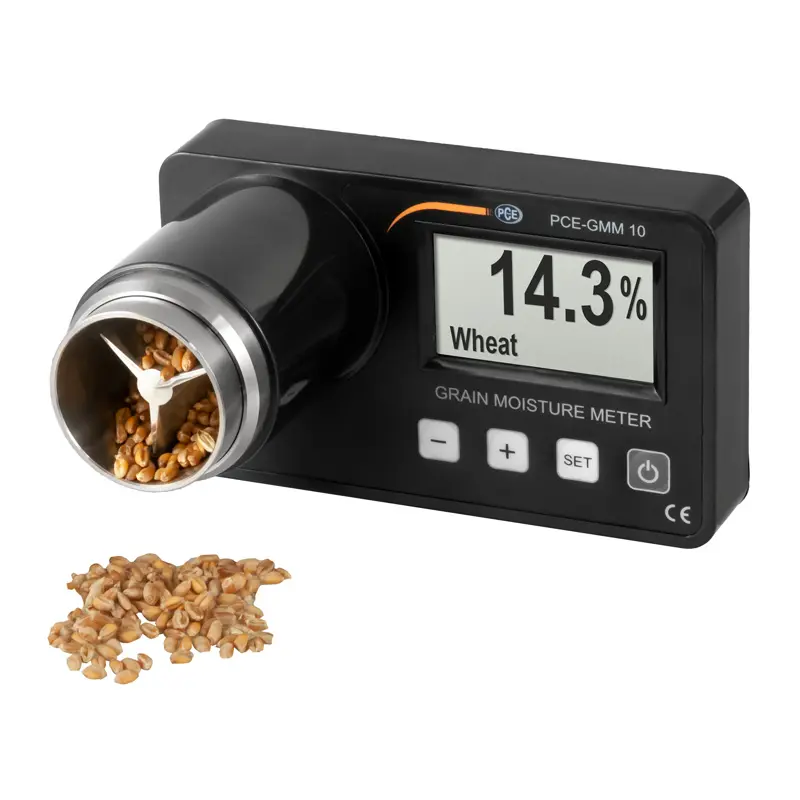The Ultimate Overview to Picking the Right Moisture Meter for Your Needs
The Ultimate Overview to Picking the Right Moisture Meter for Your Needs
Blog Article
The Ultimate Overview to Moisture Meters: A Comprehensive Overview and Just How They Can Conserve You Cash
In the realm of building maintenance, construction, and numerous sectors, the relevance of accurately gauging dampness degrees can not be overemphasized. Dampness meters act as important tools in detecting and keeping an eye on moisture web content in products, assisting in protecting against pricey damages and ensuring the top quality of products. Comprehending the nuances of different sorts of wetness meters, their applications, and the possible cost-saving advantages they offer can be a game-changer for organizations and specialists alike. Finding just how these tools can not just enhance processes yet also add to financial savings is a journey worth beginning on.
Types of Moisture Meters
One typical kind is the pin-type dampness meter, which gauges the electric resistance between two pins inserted into a product. Pinless moisture meters, on the other hand, use electro-magnetic sensing unit plates to check a bigger location without triggering damage to the product's surface.
Infrared moisture meters determine the thermal homes of a material to identify its wetness content non-invasively, making them helpful for applications where pin or pinless meters may not be appropriate. Understanding the various kinds of moisture meters available can aid industries select the most ideal device for their particular dampness measurement needs.

Advantages of Utilizing Moisture Meters

Additionally, making use of dampness meters can lead to boosted power efficiency. In farming settings, wetness meters play a crucial function in maximizing crop yields by enabling farmers to check soil moisture levels and make educated irrigation decisions.
Exactly How to Pick the Right Moisture Meter
Picking the suitable dampness meter entails considering vital elements such as material compatibility, measurement array, and calibration precision. When choosing a wetness meter, it's necessary to guarantee that the meter appropriates for the specific product you will be testing. Various products have differing electric homes that can affect wetness analyses, so picking a meter developed for your material is vital for exact results. Furthermore, think about the dimension array of the wetness meter. Make sure that the meter can identify wetness levels within the range required for your applications. Calibration precision is an additional important variable to bear in mind (Moisture Meter). Select a moisture meter with reputable calibration to guarantee regular and accurate readings. Some meters may need routine calibration changes, so comprehending the calibration procedure is essential. By meticulously examining these factors, you can pick a dampness meter that fulfills your requirements and provides precise wetness dimensions for your tasks.
Correct Techniques for Moisture Meter Usage
To make sure precise moisture analyses and maximize the performance of a moisture meter, using correct strategies is vital. When using a pin-type dampness meter, place the pins or probes into the material being examined until they make complete get in touch with. Make sure the pins are vertical to the surface area to get one of the most accurate analysis. For pinless wetness meters, hold the tool level against the product and relocate gradually to cover the entire location for a typical reading. It's essential to adjust the moisture meter according to the material being examined to improve accuracy. Take several analyses throughout the surface and average Visit This Link them out for Read Full Report an extra trustworthy outcome. Additionally, ensure that the material being checked is acclimated to the environment to stop manipulated analyses. Normal upkeep of the wetness meter, such as cleansing the pins or sensing unit, is likewise crucial to guarantee exact and constant analyses. By following these appropriate strategies, customers can rely upon their dampness meter to give reliable moisture degrees, aiding in preventing expensive damages or making sure top quality in numerous applications.

Expense Savings Through Moisture Meter Applications
Just how can the tactical usage of dampness meters result in considerable expense savings across different markets? Moisture meters play a critical function in expense financial savings by preventing potential damage and ensuring high quality control in different sectors. In the agriculture industry, dampness meters aid in identifying the optimum time for harvesting crops, avoiding excess or over-drying moisture that can influence the final product's high quality. This precise tracking assists farmers stay clear of unneeded losses and optimize their return.

Furthermore, in the food processing industry, wetness meters are vital for monitoring product high quality and making sure conformity with safety and security regulations. By properly measuring wetness material in food, manufacturers can stop perishing, maintain quality, and reduce waste, resulting in significant expense savings. On the whole, the tactical application of wetness meters is a valuable investment that can lead to considerable price reductions and improved effectiveness across different sectors.
Conclusion
In conclusion, moisture meters are useful tools for measuring and detecting wetness degrees in numerous materials. By utilizing the right moisture meter and complying with correct strategies, customers can effectively protect against pricey damages created by excess dampness.
Moisture meters offer as crucial tools in detecting and checking moisture material in materials, aiding in avoiding expensive damages and ensuring the high quality of items. Infrared wetness meters measure the thermal properties of a product to determine its dampness web content non-invasively, making them useful for applications where pin or pinless meters might not be ideal.Wetness meters provide invaluable advantages in properly keeping track of and examining wetness degrees in diverse materials and settings. In agricultural setups, wetness meters play an essential function in optimizing crop returns by making it possible for farmers to keep an eye on dirt wetness levels and make informed watering decisions.In conclusion, wetness meters are important devices for finding and gauging moisture levels in different materials.
Report this page